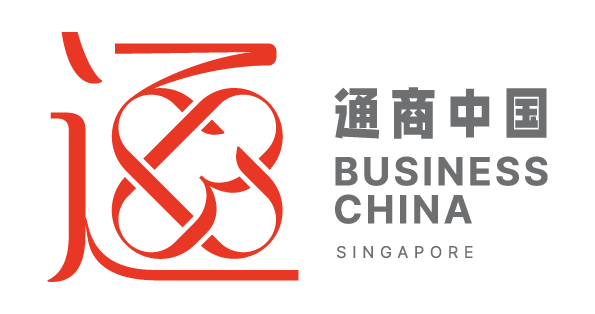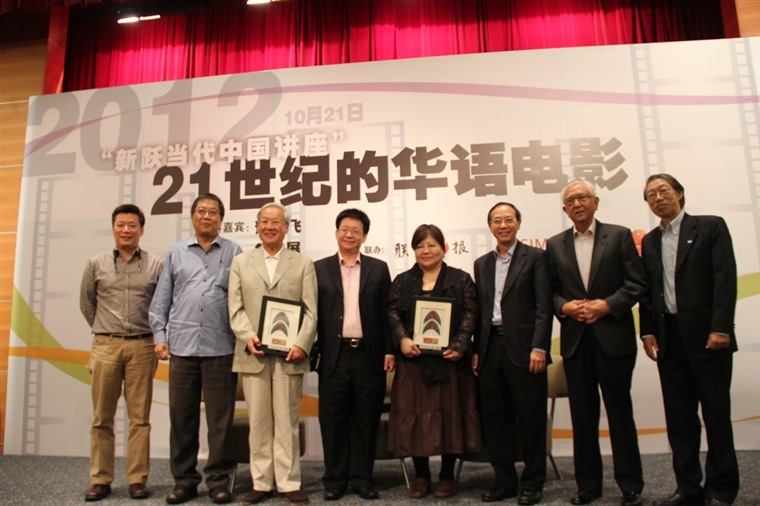Business China collaborated with Lianhe Zaobao and UniSIM to jointly host a lecture about the landscape of the 21stcentury Chinese motion picture industry on 21 October 2012. The talk entitled “Chinese Cinema in the Age of Globalisation” was part of the Contemporary China Public Lecture series. Professor Xie Fei from Beijing Film Academy and Professor Peggy Chiao from Taipei National University of the Arts spoke about the growth of the Chinese movie industry from China’s and Taiwan’s perspectives respectively. The 2 hour long talk was peppered with snippets of movies from various eras, treating the 450-strong audience to a comprehensive sampling of Chinese movies.
During the first part of the lecture, Professor Xie professed that China’s movie industry is unique in that, “Only in China do you find directors categorised according to different generations.” Professor Xie Fei is himself a 4th generation director.
This is largely due to the massive changes China had gone through over the last half a century. From the founding of the People’s Republic of China to the Cultural Revolution, there were major turning points for China filmmakers. Many of them would have gained their key inspirations and ideas from the environment they grew up in during their formative years.
As a 4th generation director growing up during the Cultural Revolution period, Professor Xie’s yet to be fulfilled wish would be to make a movie about the Revolution itself. He hopes to educate the younger generation about the implications and happenings of the Cultural Revolution through the movie.
The success of box office hits like “Crouching Tiger, Hidden Dragon” sparked growing international interest in Chinese movies. However, Professor Chiao shared that there are a number of directors in Taiwan and Hong Kong who remain unaffected by international markets trends. Instead, they choose to film movies targeted at local markets. Recent hits such as “A Simple Life” from Hong Kong and “You Are the Apple of My Eye” from Taiwan, are classic examples of successful local movie productions. These movies come with a storyline which strikes a chord in the hearts of many local viewers.
About a hundred students interested in the movie industry or aspiring to be filmmakers themselves attended the talk. One asked about the future of Singapore’s movie industry. Professor Chiao felt that Singapore films have the potential to thrive within the region. However, the incorporation of too much “Singlish” into the script remained a major challenge for Singapore filmmakers. This language barrier hinders many foreigners from fully understanding the nuances and humour in the story.
The Contemporary China Public Lecture series first started in 2011. Jointly organised by Business China, Lianhe Zaobao and UniSIM, the series aim to invite international speakers, experts and professionals to present different facets of Contemporary China, thereby promoting understanding of China’s opportunities, challenges and hopes.

